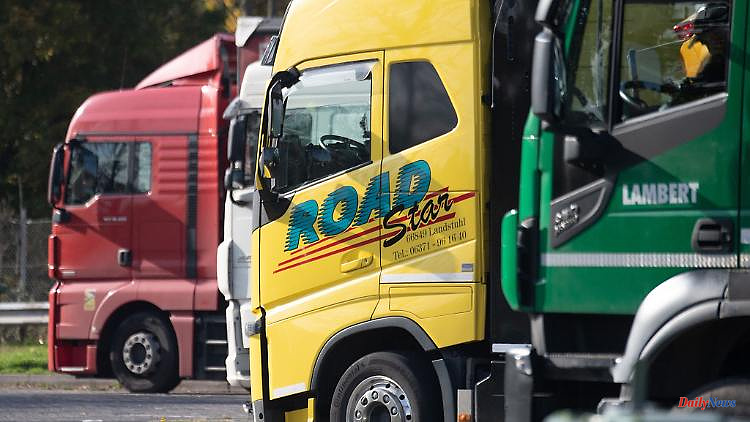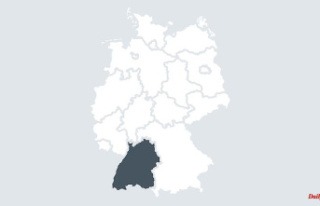A good year ago, the Union wanted to form a coalition with the Greens again and made painful compromises. This included the truck toll on state and municipal roads. Because of the crisis, she is now questioning the unloved project again.
Stuttgart (dpa / lsw) - In the green-black coalition, a tangible conflict is looming over the planned expansion of the truck toll on state and municipal roads. In view of the high inflation and the impending energy crisis, CDU faction leader Manuel Hagel is now rejecting the toll. He told the "Heilbronner Voice" (Saturday): "Baden-Württemberg going it alone would be possible, but certainly not a smart solution. The timing is also extremely bad at the moment: the Ukraine war, the gas shortage, inflation and massively increased energy prices are destabilizing our economy." Hagel wants to insist that the state government no longer pursue the goal in times of crisis.
Transport Minister Winfried Hermann (Greens) reacted promptly. The coalition agreement is very clear on this, and he "finds it strange that some in the CDU already want to distance themselves from it, with unconvincing arguments". It is agreed in the coalition agreement that a truck toll on state and district roads should be introduced as an additional source of income for the expansion of local public transport. To this end, Hermann should first try in the Federal Council and in the conference of transport ministers to convince the other countries to also introduce such a toll. He had failed in the Federal Council last week. If that does not succeed by the middle of the legislative period, he should work out a state solution according to the coalition agreement.
Hagel told the "Heilbronner Voice" that the additional burden of a truck toll would "damage the competitiveness of medium-sized companies and craftsmen, and Baden-Württemberg as a business location would lose its attractiveness". In addition, the costs of a separate state toll would "probably be passed on to customers, which would lead to even higher inflation".
Hermann accused the Union of not having ensured that the other federal states in the Bundesrat go along with the toll. "The toll makes sense because the road load from trucks is high and we urgently need money to rehabilitate roads and bridges, but also to finance the shift to climate-neutral modes of transport." The minister added: "The money is not only for the state, but will also go half to the municipalities." Before the introduction of the truck toll at the federal level, the economy had argued the same way. "And today the toll is a matter of course and not an economic problem."
FDP parliamentary group leader Hans-Ulrich Rülke, on the other hand, praised Hagel: "It's a very good day for Baden-Württemberg as a business location: Minister Hermann's dreams of collecting money in the form of a special toll on state roads and also on district and municipal roads have burst like a soap bubble ." The economy in the country rejects the toll plans.
The truck toll was introduced in Germany in 2005 on the federal motorways and has since been extended to all federal roads. It applies to vehicles with a gross vehicle weight of 7.5 tons or more. With an expansion to state and municipal roads, Hermann expects an annual income of 200 million euros.












